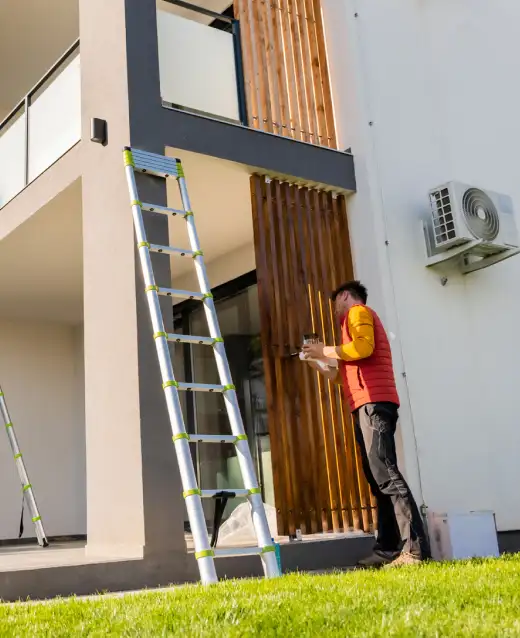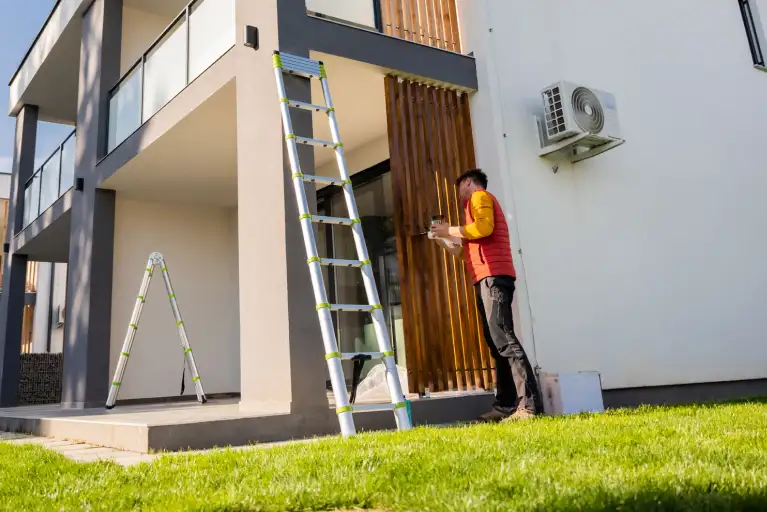Ideal timing for a home inspection
A common question that pops up, whether you’re buying or selling, is when should you schedule the all-important home inspection. Well, timing is everything as they say, so here are some simple guidelines to follow:
For buyers: You should arrange to have the home inspected within the time frame set out in the home inspection contingency clause in your purchase agreement. A buyer's Realtor is welcome to join the home inspection to guide the buyer through the process, spot any needed repairs and stand up for their interests. But sometimes, buyers might want to go it alone, or the agent might have other commitments that prevent them from being there.
For sellers: It’s not a bad idea to schedule an inspection before you list your home for sale. This gives you time to up and present your home in the very best light and minimizes surprises that could derail a great offer.
What's covered in a home inspection?
Now, what exactly do inspectors look for in a home? Typically, they look for damage and potential issues both inside and out, including signs of mold, fires and floods. Here’s a general list of what home inspectors look at to help you prepare:
| Type | What is inspected | Benefit |
|---|---|---|
| Structure | Foundation, roof, walls, ceilings, floors | Gives you peace of mind by confirming the home is solid and secure from the ground up. |
| Systems | HVAC, plumbing, electrical | Ensures all essential systems are running smoothly and safely so you can live comfortably. |
| Exterior | Windows and doors, siding and trim, landscaping | Helps you spot external issues that could affect your home's longevity and curb appeal. |
| Interior | Appliances, bathrooms, fire safety | Makes sure everything inside is up to snuff for your daily comfort and safety. |
| Additional | Pests, mold, radon | Protects your health by identifying hidden problems like pests and mold before they become major issues. |
Common issues that can cause a home inspection to fail (& how to fix them)
If a home inspection goes sideways, remember: knowledge is power. Finding out about home issues early can save you from big "oh-no" moments down the road. These issues can be stressful, but the sooner you know, the better. Like the doc says, an ounce of prevention is worth a pound of cure.
Here are some of the usual suspects along with some handy solutions for sellers:
FAULTY ROOFING
Your roof is your first line of defense against rain, hail and the occasional wayward tree branch. Holes, tears and missing shingles spell trouble ahead. Your inspector can tell you whether your roof is still doing its job or in need of some TLC.
Potential fix? Keep up with regular check-ups for your roof. Replace those missing or sad-looking shingles, make sure vents and chimneys are sealed tight and don’t forget to clear out those gutters. If things look a bit too adventurous up there, calling in a roofing pro might be your best bet.
ANCIENT PLUMING
Old pipes can be charming—until they're not. While they may add a touch of historical character, outdated systems can mean leaks, low water pressure or even burst pipes, which could cause major water damage to your home. Better safe than sorry.
Potential fix? Get a skilled plumber to take a peek and see what’s up with your pipes. They can swap out the old bits with some shiny new parts where needed. If your plumbing’s really taking you back in time (and not in a charming way), it might be time for a full system upgrade.
DODGY WIRING
This sneaky culprit can cause more than just a headache—faulty wiring poses serious safety risks. Your inspector will check the electrical system, including wiring, service panels and safety devices like ground fault circuit interrupters to rule out potential hazards.
Potential fix? Electrical gremlins? No thanks! Best to call in an electrician to sort those out. They can update your wiring, make sure your service panels are in top shape and install all the right gadgets to keep your home safe. Keeping everything up to code not only keeps the lights on, but also keeps everyone safe.
FOUNDATION WOES
If your foundation could talk, it might tell you it's under pressure. Cracks or uneven floors aren't just early signs of aging; they're SOS signals that require a closer look. But no worries—your inspector can help you catch these issues before you’re in Leaning Tower of Pisa territory.
Potential fix? If your foundation is sending out SOS signals, don’t wait for things to get more dramatic. Bringing in a structural engineer can be a real game-changer. They might suggest some underpinning to beef up the foundation, or maybe some clever drainage solutions to keep water at bay. And if your floors are doing a funhouse mirror impression, hydraulic lifts could straighten things out. Regular check-ins can help catch any new quirks before they turn into big productions.
Consequences of failing a home inspection
If your home inspection resembles a bad report card, take a deep breath. It's not the end of the road. In fact, it’s just part of the process.
For buyers: A poor inspection report can actually open up a few opportunities. Buyers can ask sellers to fix major problems as part of the purchase agreement—a Realtor can help guide you through this process. You might also negotiate a credit at closing, which lets you manage the repairs yourself. If the repairs look like more than you want to handle and your purchase agreement includes a home inspection contingency, you may be able to get your earnest money back and walk away from the sale.
For sellers: Fixing problems can keep a sale on track. If repair costs are too high, sellers might lower the price or offer a repair credit at closing to help cover the cost of repairs or closing costs.
What home inspectors can't do: understanding their limitations
Remember, home inspectors aren't superheroes. They’re not equipped with x-ray vision or the ability to predict the future. Their job is to assess what's visible and accessible. They won't move heavy furniture or lift carpets, and they certainly won't cut into drywall to see what’s inside. Inspections are fairly non-invasive, ensuring they leave your property exactly as they found it.
An inspector will scrutinize every accessible nook and cranny to determine the condition of the home. Then, they document their findings in a report that is shared with you along with their recommendations which can guide your next steps in the buying or selling process.
Home inspection costs
So, how much will a house inspection set you back? Typically an inspection will cost between $300 and $500.
Tips for finding a reputable home inspector
Selecting a true professional is key. When you’re thinking of what to ask a home inspector, don’t be shy. From state-certified credentials to client testimonials, their resume should be impressive. Here’s how to partner with a highly qualified pro:
- Check qualifications: Just as you’d check a physician’s credentials, ensure your home inspector is certified and comes highly recommended within the industry. Make sure they have a track record of expertise and reliability you can hang your hat on.
- Read reviews: From social media to industry websites, look for feedback from previous clients. Lots of great reviews are a good indicator of an inspector's thoroughness and reliability. It's a “thumbs up” from homeowners who've been in your shoes.
- Ask for a sample: Reviewing a sample report helps you see how the inspector communicates their findings. Is it detailed, yet easy to understand? You’ll want it to be crystal clear so you know exactly what you’re getting into.
- Verify their license: Confirming that your inspector has a valid license to practice in your state is essential.
Navigating a home inspection doesn't have to be a headache. Timed right with a good home inspector by your side, it can be a smooth part of your buying or selling journey to get you to the final walkthrough with the confidence that all is in tip top shape!







